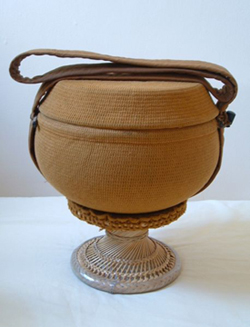
The practice of dana is an important part of the Theravada Buddhist tradition. Dana is a Pali word for giving, though it is usually described as referring to the practice of generosity.
As part of the practice of dana, the teachings are freely offered to make them available to everyone.
Another part of this practice is for students to offer gifts to their teacher, or more traditionally for lay people to offer gifts to monks and nuns. These gifts help meet the material needs of the teachers and monastics so that they can continue to study, practice and offer the teachings to others.
The practice of dana is not about payment for services provided. There are no "suggested donations" in this tradition, nor is it about giving to receive a tax deduction. Rather, one gives when and what one's heart feels inspired to share. Teachers share what they have realized through their own study and practice. Students share what they feel is appropriate to the situation. Both act from compassion and gratitude. This practice has helped maintain the Dharma as a living tradition for over 2600 years.

